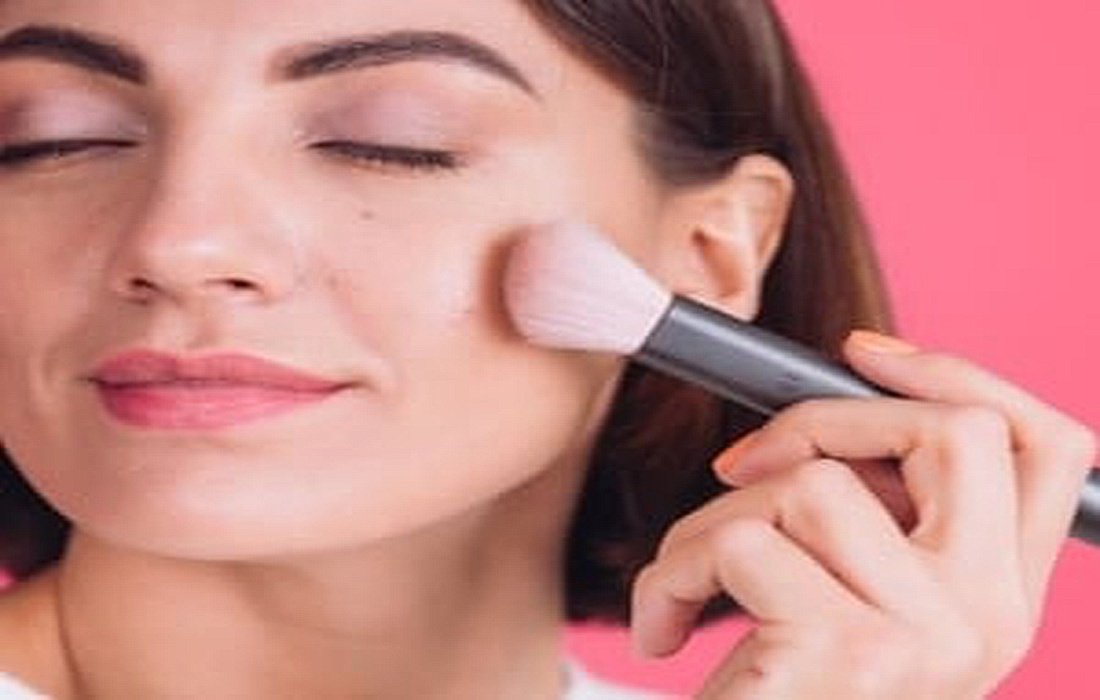Key points about using cosmetic and hygiene products duringpregnancy
inpregnancyWomen often face various skin issues during pregnancy, leading them to use makeup in an attempt to hide these effects.
What is the impact of makeup on the health of the mother andthe fetus?Researchers have discovered that any substance applied to the skin can enter the bloodstream and may cross the placenta. Therefore, extra caution is advised when using cosmetics during this period.
Recommendations for using cosmetics during pregnancy
The importance of consulting with a doctor
Before using cosmetics, it is best to consult your doctor. Generally, experts advise limited use of cosmetics and hygiene products during the first trimester of pregnancy.
However, there has yet to be a definitive opinion on the amount of cosmetic use, and differing views have led to uncertainty about the definitive harmful effects of cosmetics, with no conclusive studies proving their absolute danger or safety. Nonetheless, caution is always wise.
Using reputable brands
The second recommendation for pregnant women regarding cosmetics is to use products from approved brands that can ensure safety. Pregnant mothers should choose brands that list all ingredients clearly on their products.
This way, if an ingredient poses a risk to the fetus, it can be identified through the ingredient list. Generally, it is advisable to minimize cosmetic use, especially in the first trimester, except for essential items.
It is essential to remember that visible changes to appearance and skin during pregnancy are justifiable, and one should focus solely on the health of the child. These swellings, spots, and blemishes will fade over time, and physical beauty will return; during this period, the primary concern should be the fetus’s health.
Over 75% of cosmetics contain a preservative called parabens, which increases the risk of breast cancer and hormonal disruptions if consumed. They can also make fertility difficult or impossible.
During pregnancy, entry of these substances into the body should be prevented, as hormonal disorders caused by parabens can lead to serious problems, particularly in the first trimester, by affecting fetal development.
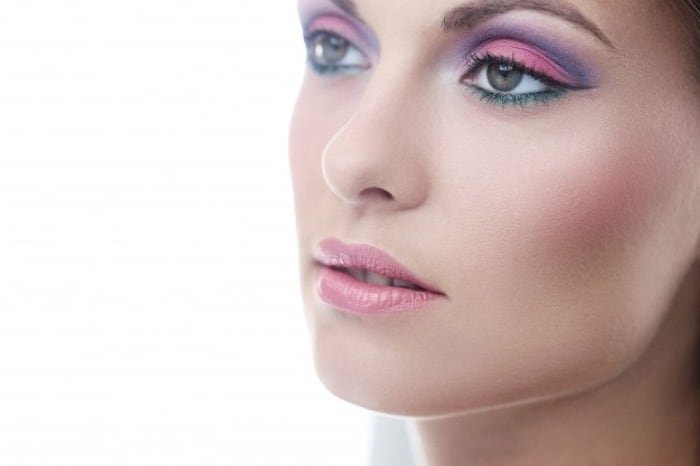
Permissible cosmetics during pregnancy
If you’re interested in using cosmetics and enhancing your appearance during pregnancy, please pay attention to the important points mentioned in this section ofSelMagz:
- During pregnancy, especially in the first trimester, limit the use of chemicals like lead and mercury to protect your developing fetus.
- Hair dye, artificial nails,nail polishand hair curling products contain harmful chemicals. Although there is no clear evidence linking these substances to diseases in the fetus, avoiding their use is wise; if necessary, use them in well-ventilated areas.
By following a skincare routine, enjoy having vibrant and youthful skin. This routine shouldn’t only be specific to pregnancy; replace chemical products with organic ones throughout your life.
Makeup Dos and Don’ts During Pregnancy
Facial care during pregnancy
While there is no definite method to prevent skin changes during pregnancy, managing these changes is possible. For example, using suitable moisturizers is advisable, but avoidmicrodermabrasionand exfoliants during this period, as pregnant skin is sensitive.
Inform your beautician about any sensitivities you have regardingmassageand ensure to place a pillow under your head after the first trimester, as lying flat can slow blood circulation andcause dizziness.Sunbathing?!
Ultraviolet rays can worsen the skin discoloration caused by hormones during pregnancy. Additionally, tanning lamps can get very hot, potentially harming the fetus. For sun exposure, limit yourself to a few minutes under
sunlight.Of course, before that, apply sunscreen with an SPF of fifteen or higher.Pay attention to the labels on your sunscreen.
Select a sunscreen that does not contain a dangerous substance called oxybenzone. This ingredient may not pose a threat to the general population but can increase the risk of low birth weight in pregnant women. Many sunscreens available contain oxybenzone, but safe alternatives can be found with a bit of research.
Avoid using gel on your nails.
Nail gels create a natural and long-lasting appearance, which is now very common. While these gels do not pose a risk to the mother and fetus, researchers believe that the ultraviolet light used to cure the gel nails may not be entirely harmless.
Experts believe that hand skin becomes more sensitive during pregnancy, increasing the risk of infections or fungi around the nails. Although gel nails are generally safe, some beauty salons use inferior materials, increasing the risk of harming the fetus.
Therefore, if you’re interested in this, visit reputable salons. However, wait until after pregnancy to remove nail gels, as the process requires exposing nails to acetone-like chemicals for several minutes. Although researchers still do not know the potential harm to the fetus.
Avoid using perfume.
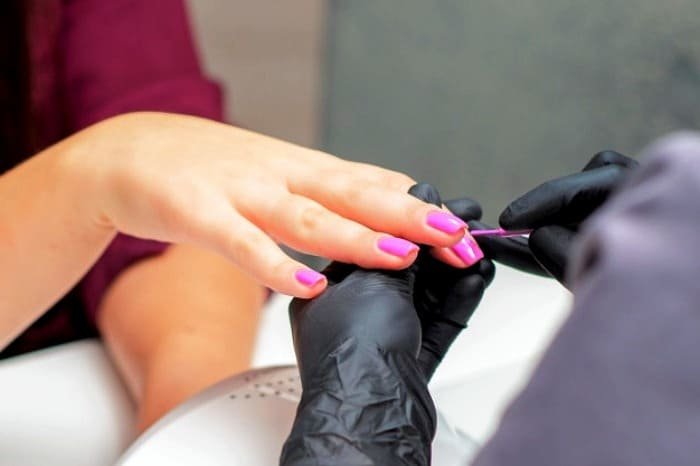
Many fragrant perfumes contain a substance known as phthalates, which is also found in some cleaning products and shampoos. Notably, many perfume producers market their products without mentioning this fact on the labels. Phthalates can increase the likelihood of childbirth complications, so instead of searching for phthalate-free perfumes, use other methods for scenting your body.
Using
lipstickwithout leadis important.
Over 70% of available lipsticks in the market contain lead. Besides lipstick, nail polish also significantly contributes to the presence of this hazardous substance in its formulations. Lead absorption into the body increases the likelihood ofinfertilityand poses a risk ofmiscarriageas well.
Teeth beauty
If your teeth have become a bit yellow and you desire a beautiful, dazzling smile, it’s better to wait. There is insufficient information proving the harmfulness of teeth whiteners, and research on their safety remains incomplete; researchers still do not know whether teeth whitening substances are more harmful to the fetus or the pregnant woman herself.
However, as previously mentioned on SelMagz, because teeth whitening is an elective procedure, doctors recommend postponing it until after childbirth, minimizing exposure to UV light and whitening agents. Some even advise against this during breastfeeding.
Typically, teeth and gums are more sensitive during pregnancy and breastfeeding, and due tohormonal changestheir tissue is weaker, increasing the likelihood of bleeding.
Using whitening products during this time can lead to pain and irritation, potentially entering the mother and fetus’s bloodstream. For this reason, avoid teeth whitening during pregnancy.
Don’t dye your hair every month.
Hair dyes contain substances that raise the risk of nervous system damage to the fetus and increase the likelihood of childbirth issues. However, researchers suggest that dyeing hair three to four times during pregnancy is generally safe for the fetus.
If you are overly concerned about the fetus’s health and want to use natural colors, pay close attention to your selections.Excessivecarefulness
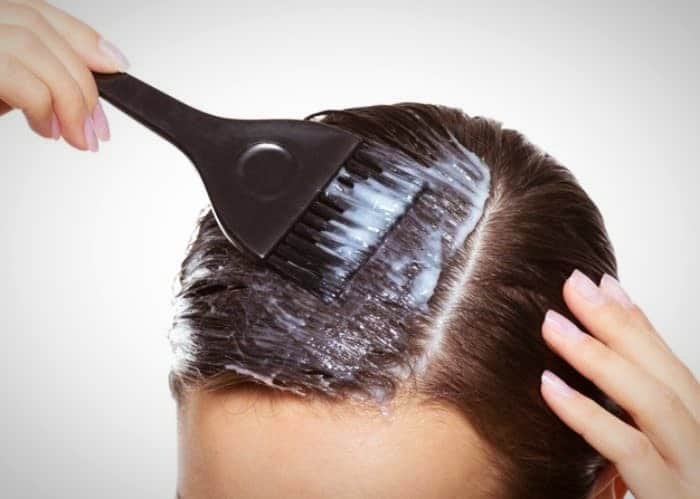
is key. Most herbal colors found at herbal stores and pharmacies contain chemicals that should not be used during pregnancy.Pregnancy and
nail extensions
Beautiful hands with long, well-formed nails are one of the visual charms that women enjoy. Nail extensions pose no problem for pregnant women and the fetus, but the margins of nail extensions can be a risk.
If you typically have nail extensions before pregnancy, there’s no need to worry as these chemicals do not enter the bloodstream and pose no harm to the fetus. However, if you want to try nail extensions for the first time during pregnancy, greater caution is required, as you might have sensitivities to the materials, or face fungal or skin infections. In such cases, nail extensions can be harmful.
Nail extensions use a chemical called liquid, which emits a strong, unpleasant odor. This gas can distress non-pregnant people, so be careful not to inhale it while getting your nails done, as it can make you feel unwell.Another point is that you shouldn’t have nail polish on during childbirth, let alone nail extensions, since during anesthesia, the doctor checks the state of your body and reaction to the anesthesia through bruising under the nails. Thus, it is better to enjoy your natural nails, which may have become stronger due to hormonal changes during pregnancy.Botox
Until now, no conclusive evidence has shown that Botox is harmful during pregnancy. However, many doctors have prohibited cosmetic procedures like Botox during pregnancy. For the sake of your health and the fetus, it’s best to avoid Botox during this time.
Waxing and hair removal
If you’re accustomed to using wax and depilatories, you can continue using these products for hair removal during pregnancy. But note that, in addition to the significant pain, your skin can become inflamed and painful.
The pain from using these products in the later months of pregnancy can be intense enough to cause severe contractions. Therefore, it is advisable to avoid their use after the 37th week.Anti-wrinkle creamsBefore using anti-wrinkle creams during pregnancy, carefully review the ingredients listed on the packaging, as many of these creams contain a substance called retinol, which can cause incomplete fetal growth, miscarriage, and birth defects. Therefore, show the cream to your doctor before use and ensure it is safe to apply.
Acne creams
Hormonal changes can lead to acne and
pimples
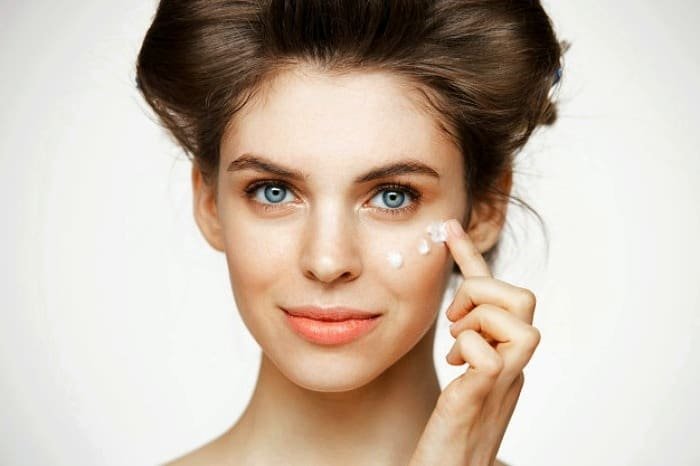
in some women, but not all medications should be used to treat them. For instance, isotretinoin, tretinoin, and
Wash your face twice with warm water andsoapto quickly reduce acne. Avoid pulling hard on your skin while washing, as this can create scratches and worsen the condition of wounds.
Avoid sauna and jacuzzi!!!
Swimming and being submerged in water can be relaxing, and you may think that warming your body in the water can help with various pains during pregnancy and relieve muscle tension and discomfort from weight gain.
However, for this purpose, do not use a sauna and jacuzzi until the end of pregnancy. Sitting in a warm bath (not hot) or taking a warm shower is not problematic, but saunas and jacuzzis are dangerous for pregnant women.
In these places, the water temperature exceeds 100 degrees, increasing body temperature and loweringblood pressurewhich can lead to dizziness and extreme fatigue, and excessive body heat can disrupt oxygen and blood circulation to the fetus.
Additionally, it could cause defects in the central nervous system of the fetus (the brain and spinal cord). The warming of the amniotic fluid increases the risk of miscarriage. Therefore, do not use saunas and jacuzzis during pregnancy.
Using a warm bath is not problematic, as it allows the head, neck, knees, arms, and shoulders to rise above the water, helping maintain a balanced body temperature. However, avoid using a tub in the later months as it may cause the water bag to rupture and bacterial infections, which can be dangerous for both mother and fetus.
Cosmetic product ingredients
To protect your health and that of your fetus, you must be cautious about the following substances in any cosmetic product and avoid using them. Consult with your doctor to find suitable alternatives.
Centella Asiatica
This is an effective treatment forstretch marksHowever, Centella Asiatica can increase sensitivity to sunlight, cause irritation, anditchingin pregnant women. Moreover, the oral consumption of this substance acts like a narcotic, and it can even lead to miscarriage.
Vitamin A:
Consuming adequate amounts of Vitamin A is beneficial for the skin. Creams and capsules containing retinoids have a synthetic form of Vitamin A that helps combat acne andpsoriasisand treat skin disorders,premature agingandwartsHowever, the use of retinoids during pregnancy can adversely affect fetal development.
Vitamin K:
This vitamin is one of the key components of skin whitening creams. Additionally, Vitamin K is essential for blood coagulation. However, during pregnancy, women are prone toblood clottingso it is essential to prevent Vitamin K from penetrating through makeup into the skin and entering the bloodstream, as this can have adverse effects on the fetus.



